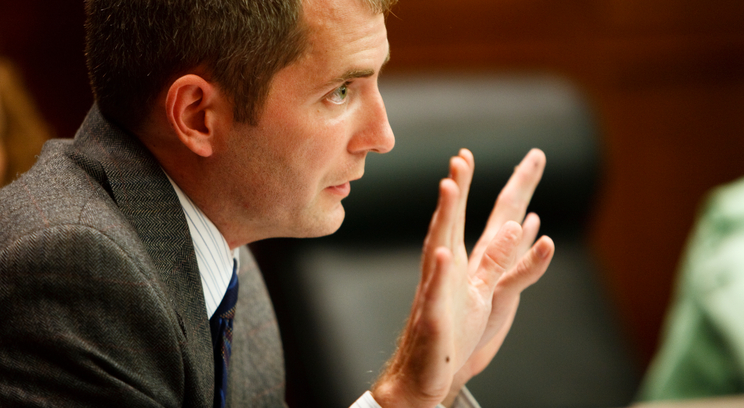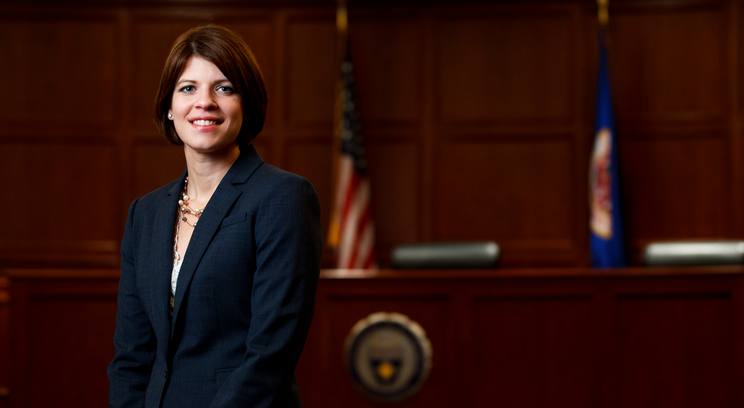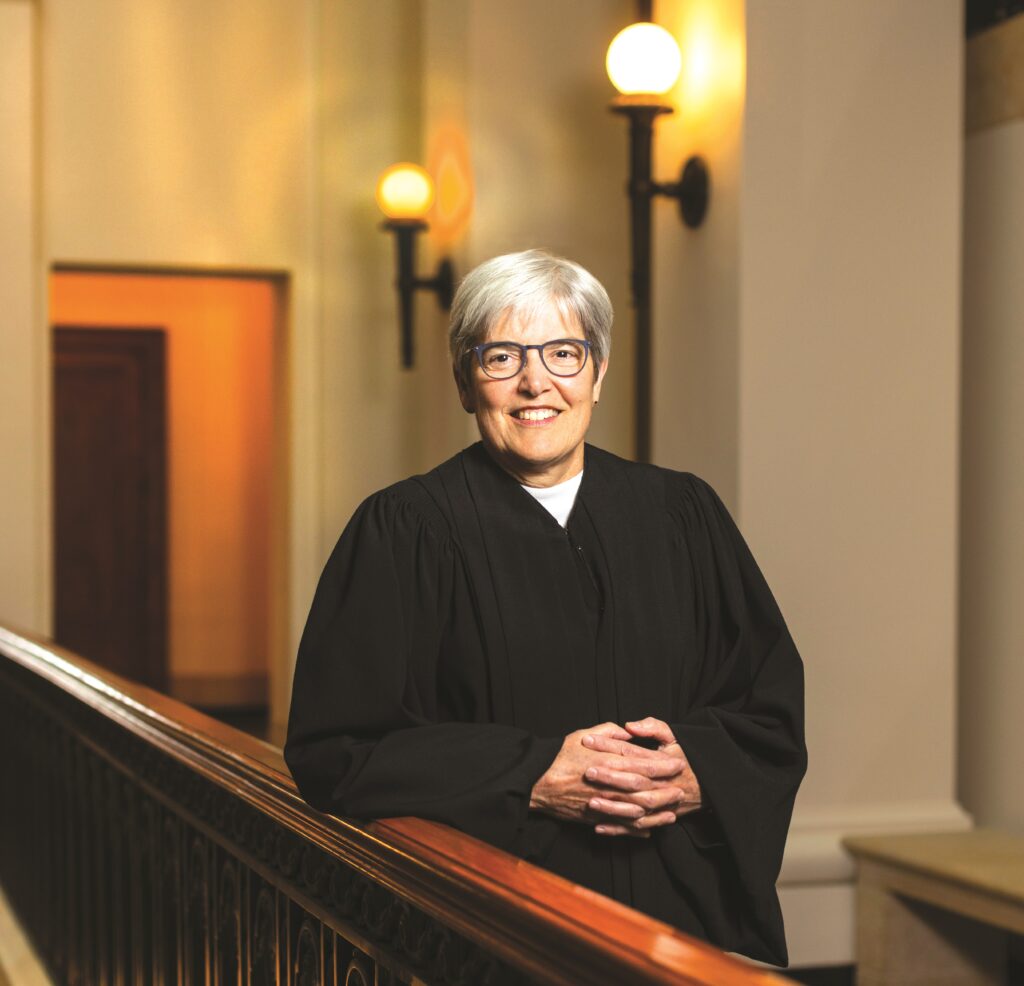I firmly believe that St. Thomas fosters the professional formation of each student to internalize a deep sense of responsibility for others better than any other law school in the country, and our success on this front is one reason why I am excited to serve as your new dean.
My first job was stocking shelves at a Walgreens in suburban Chicago. As a 16-year-old, I was in it for the money, pure and simple. I did what I was told, but nothing more, keeping one eye on the clock and counting down the minutes until my shift ended. Not surprisingly, I was awful at my job. I remember the manager watching me for a while, shaking his head and asking, “Is it physically possible for you to move any more slowly?” I lasted for about three months.
Years later I realized why I failed: I was only in it for me. Any notion that I should perform more than the minimum required or devote myself to the customer’s well-being never crossed my mind. As long as I kept the shelves full and responded to the manager’s direct instructions, I was doing my job. Or so I thought.
Anyone who has had a successful career knows that my teenage self-absorption was not simply a moral shortcoming; it rendered me professionally ineffective. By not embracing the core service values that must animate even the stock boy’s role, I had set myself up for failure. Keeping track of the storage room got me nowhere unless I also kept track of the customer-service ethos that was at the heart of the enterprise.
When we talk about professional formation at St. Thomas, this is what we mean. Effective lawyers, even more than stock boys, must grow to internalize a robust set of professional values, not simply acquire a set of technical skills. At bottom, these values require placing service to others over self.
We must be vigilant not to let “professional formation” become a catch phrase on a brochure, rather than a defining element of what we do every day, both inside and outside the classroom. These are challenging times for legal education, but we are well-positioned to navigate a rapidly changing landscape because our mission commits us to educate the whole person. As a result, our graduates emerge with the knowledge and skills they need to succeed, but they also emerge with a sense of how their own moral compasses shape their professional identities, along with a commitment to keep developing the values and attitudes that are at the heart of the lawyer’s role and essential to thriving in a highly competitive marketplace.
By developing a strong service ethic and the relationship skills that go with it, law students aren’t just doing the right thing; they’re doing the smart thing. As Indiana University’s William Henderson – one of the nation’s leading authorities on the legal profession – remarked recently, “Sure, lawyers need to be smart,” but in a very competitive legal market, they “also need to be personable, collaborative, entrepreneurial, service oriented and interested in contributing to the collective welfare of the law firm.”
St. Thomas law Professor Neil Hamilton’s research shows that legal employers and clients want their attorneys to have strong relationship skills, with terms such as “responsiveness and commitment to the client,” “teamwork,” “working with others,” “mentoring” and “networking” cropping up repeatedly.
St. Thomas has always been ahead of the curve in this regard. A commitment to take relationships seriously – and to educate students in a way that equips them to take relationships seriously – has been central to our school’s success since we opened our doors 11 years ago. That may help explain why we have so frequently been at or near the top of The Princeton Review’s rankings for student quality of life. The commitment is not an add-on to our mission; it is at the core of our mission.
As a Catholic law school, we believe in the social nature and inherent dignity of the human person – a belief we share with all major religious traditions – and we have built the law school community accordingly. We want our students to work well with others, not just because doing so will advance their employment prospects, but because doing so reflects our more fundamental commitment to honor human dignity.
Whether it’s through our award-winning mentor externship, the Foundations of Justice course, our expanding array of experiential learning opportunities, our groundbreaking course offerings on ethical leadership, a faculty of world-class scholars who help students pursue legal reform that improves lives, or our rich sense of community and commitment to public service, St. Thomas continues to pioneer new paths of professional formation. The results thus far have been remarkable, but I’m confident that the best is yet to come. I welcome your support as we move forward into our second decade of keeping the whole person at the center of legal education.
Read more from St. Thomas Lawyer.





